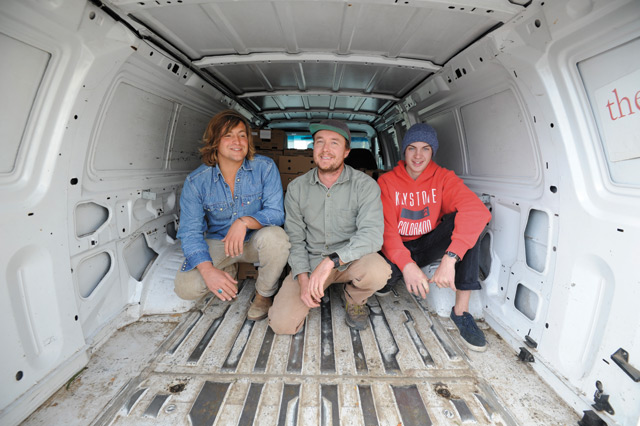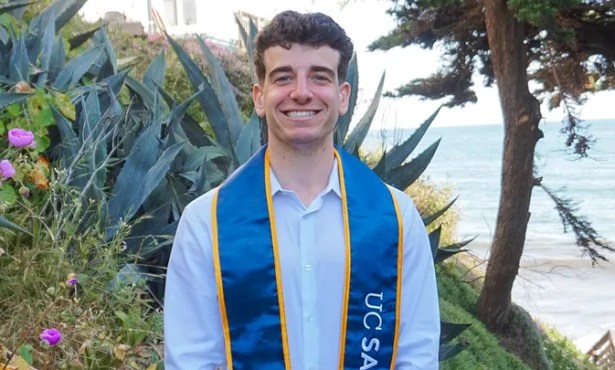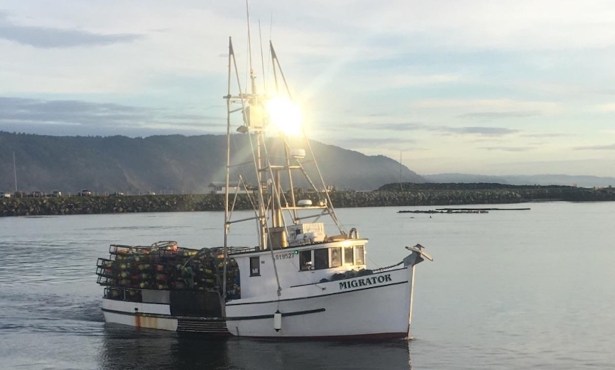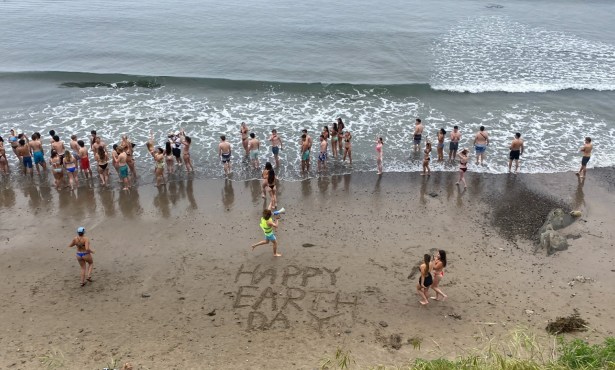Carp Crew Delivers 3,000 Pounds of Veggies to Standing Rock
Area Farmers Donated Food to Dakota Access Pipeline Protestors

In a van loaded with 3,000 pounds of donated butternut squash, potatoes, yams, carrots, and apples from nearby farms, Carpinteria’s Jason Lesh, Chris Everett, and Donald Watts beelined to North Dakota last week to deliver supplies and manpower to those protesting the construction of the Dakota Access Pipeline near the Standing Rock Sioux Reservation and beneath Lake Oahe, which provides drinking water and fishing grounds for the tribe. “We arrived to open arms,” said Lesh, who owns and operates The Farm Cart with his wife, Katherine.
Pulling into the Oceti Sakowin Camp at first light after the 1,700-mile drive — slowed by inclement weather and slick roads through the Rockies and beyond — the trio was dispatched to help fix tents and build flooring for the encampment. “We were asked why we were there and what we expected from our visit,” Lesh remembered. “Then we were asked to release our expectations and ask ourselves how we could be helpful.” Lesh had been following the months-long standoff between law enforcement and pipeline protesters and said he was spurred into action when he “saw the violence coming to a head and how the winter was coming on heavy.”
After two days at the encampment, they headed back to Carpinteria, arriving home just before the Army Corps of Engineers announced it would not approve an easement that would allow the proposed Dakota Access Pipeline to cross under Lake Oahe. “Although we have had continuing discussion and exchanges of new information with the Standing Rock Sioux and Dakota Access, it’s clear that there’s more work to do,” said Assistant Army Secretary Jo-Ellen Darcy. “The best way to complete that work responsibly and expeditiously is to explore alternate routes for the pipeline crossing.”
“A lot of us in the younger generations don’t think the old business models are working,” Lesh said. “We don’t think that these companies have the right to put profit first, and we can learn from situations like this. We can follow the lead of the Standing Rock Sioux to protect the land.”



